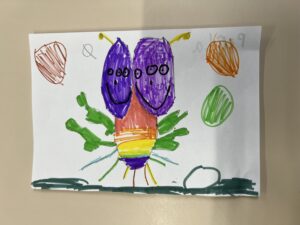3,4 A Class News – World Book Day
Yesterday it was great to hear the children read aloud extracts from their favourite books using their fantastic oracy skills. Mr Goodwin and I read an extract from our favourite childhood books too: Fantastic Mr Fox and The Lottie Project. We also went to visit Miss Lowry’s class and read with some of the Year 1s. 

KS1 – Topic
This half term KS1 are studying Computing in Topic. Last week, we discussed what a computer is and what sort of devices we might have at home that have a computer built-in.
This week, we have been looking at algorithms. We have been learning all about the program ‘Scratch Jr’ and how to create an algorithm. We know how to set a sequence so that our Sprites (characters) move, shrink, grow and turn.
We also learnt how to debug an algorithm that does not work and how to alter a sequence.
We’ve had a lot of fun using Scratch and learning about all of the buttons and how they work. We are really looking forward to using the program again next week and learning more!


World Book Day!
Yesterday we celebrated World Book Day by visiting the younger classes to enjoy a good book. Year 5 headed to Mrs Latham’s class where we were met by some very enthusiastic readers. Some year 5’s read to the younger children, whilst some of Mrs Latham’s class showed off their amazing fluent reading to their older peers. I even enjoyed Mahli reading ‘Funnybones’ to me – my favourite book when I was little. What an awesome reader she was!




World Book Day
This morning, year 6 children took a trip over to nursery. They read stories and talked about their favourite characters.
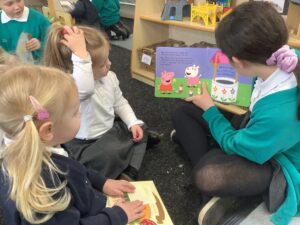
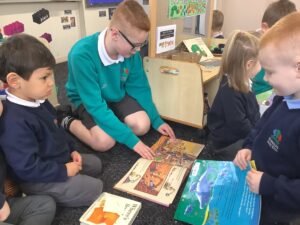
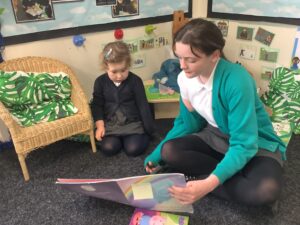
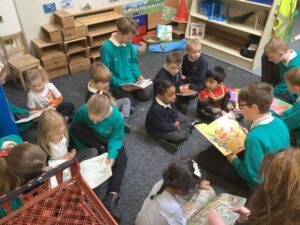
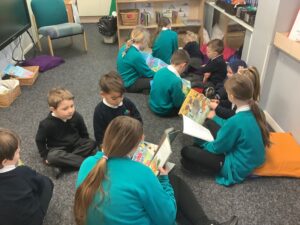
World Book Day
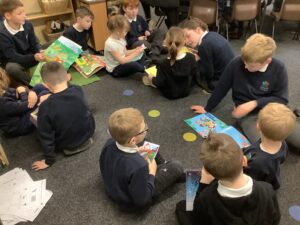



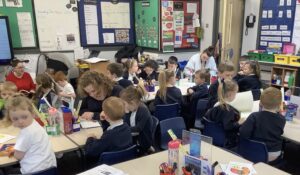
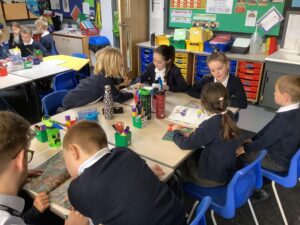
One of the ways we have celebrated World Book Day is by shared reading. The year 5/6 children visited KS1 this morning to read our favourite books to us. The children enjoyed being read to and sharing why they liked their books.
The adults have also been sharing their favouirte books with the children.
Wanted! Baby photos
Next week, we’re learning about growing up and looking at how we change as we get older.
It would be great if we could look at some photographs of children when they were babies and toddlers. If you are able to, please send us an email with one photograph of your child as a baby and one photograph of them as a toddler. We’ll use these in group time and will also be adding them to our Home Corner family display.
Science: We are chemists




We have continued to be chemists in our science learning and conducted an experiment that produced a chemical reaction. The children mixed two liquids – vinegar and warm milk. The vinegar altered the acidity in the milk and made it curdle. The children sieved the liquid to retrieve the curdled mixture and then moulded and dried it. This chemical reaction had created a type of plastic. The children recognised that this was an irreversible change as it could not be returned to its original state. We were quite amazed by the whole process and also quite overwhelmed by the weird smell that the mixture made!
Help at home: Could you recreate this experiment at home so your child can talk you through the process? Can they use any scientific vocabulary in their explanation?
Reading: book club


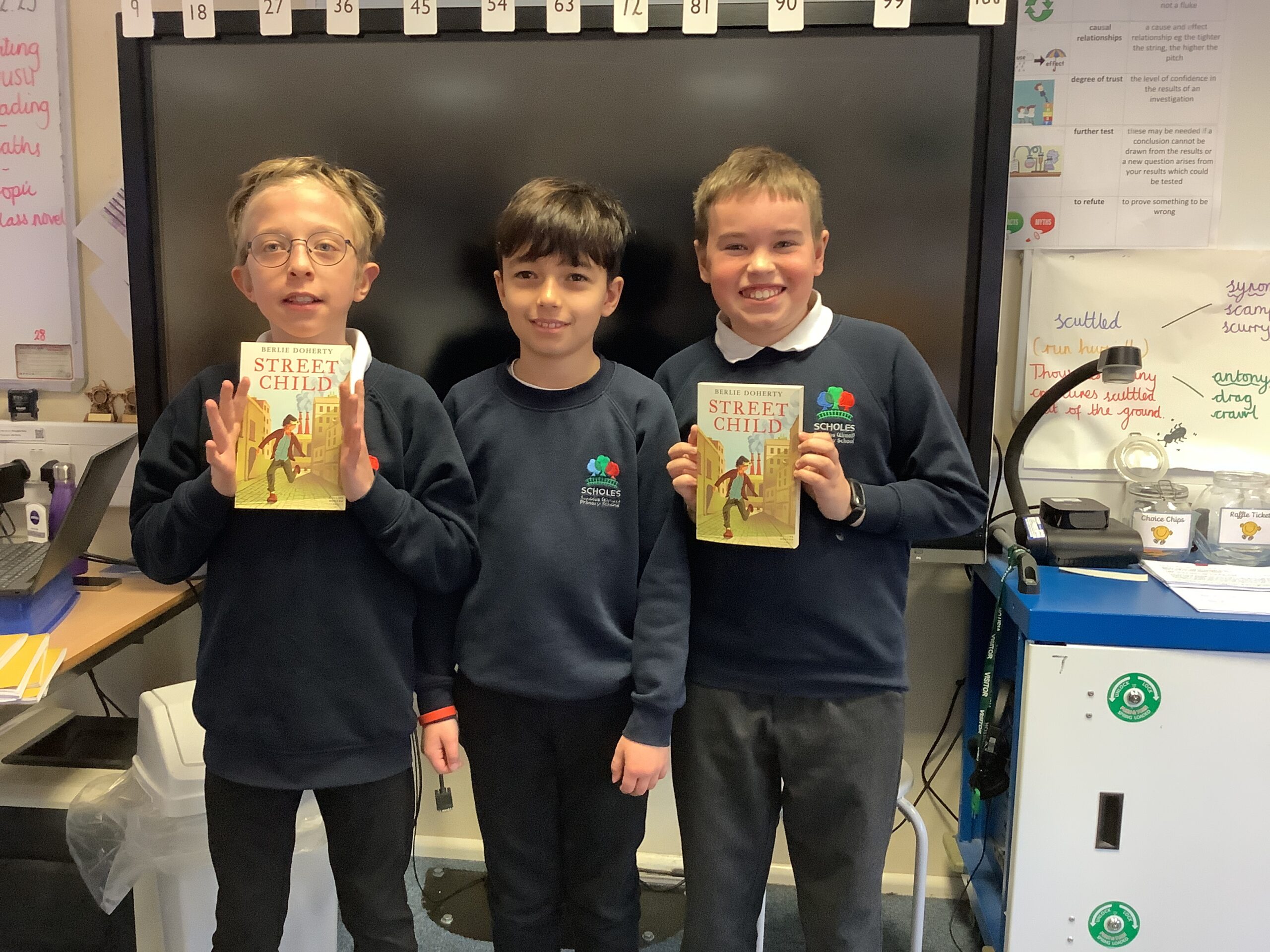

This half term, the children will be bringing home a group reader book. They were given the opportunity to look at a range of books and read the blurbs. They discussed which books they liked and which they disliked. They then grouped together according to the book they’d selected. The children will still be set a target page each week and they will be choosing their weekly task – this will still be recorded in their journals. The team that reach their target page and complete their tasks well, stand a chance of being our weekly trophy winners. Who will it be this week?
Help at home: continue to read daily with your child. This will improve understanding and fluency. Reading to an adult can also increase a child’s enjoyment of a book.
Reading with automaticity and fluency : Poem of the week
We really enjoyed our Poem of the week last week. After reading it every day, we become fluent and read with more and more automaticity. This makes the children feel like ‘real readers’. It also inspired us to draw our own aliens.
Help at home by encouraging your child to read the poem of the week to you when they bring home a copy of it on Fridays.
World Book Day 2023 (but we’re doing all week!)
We enjoyed a brilliant video chat with Julia Donaldson and Axel Scheffler today. They read stories to us and Axel showed us how he does his illustrations. You can enjoy their new book, The Baddies, here. (This is a YouTube link. Top tip for watching YouTube with your child: go to the settings cog along the play bar and turn off autoplay – this avoids an inappropriate clip coming up automatically, and helps to discourage your child from passively watching clip after clip.)

